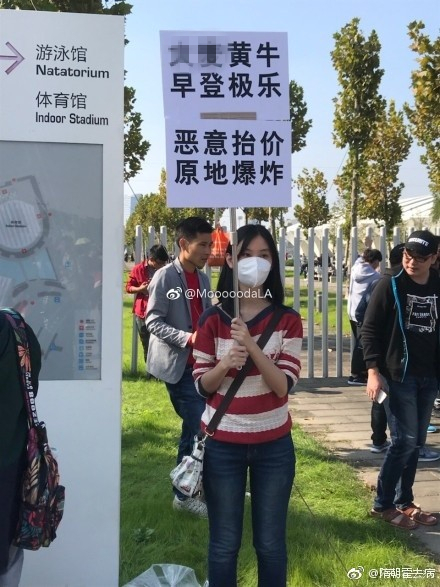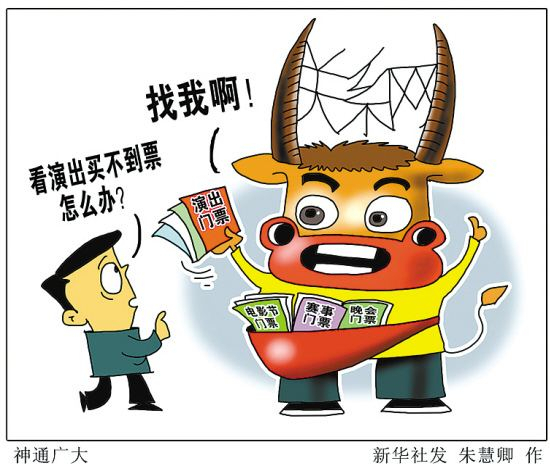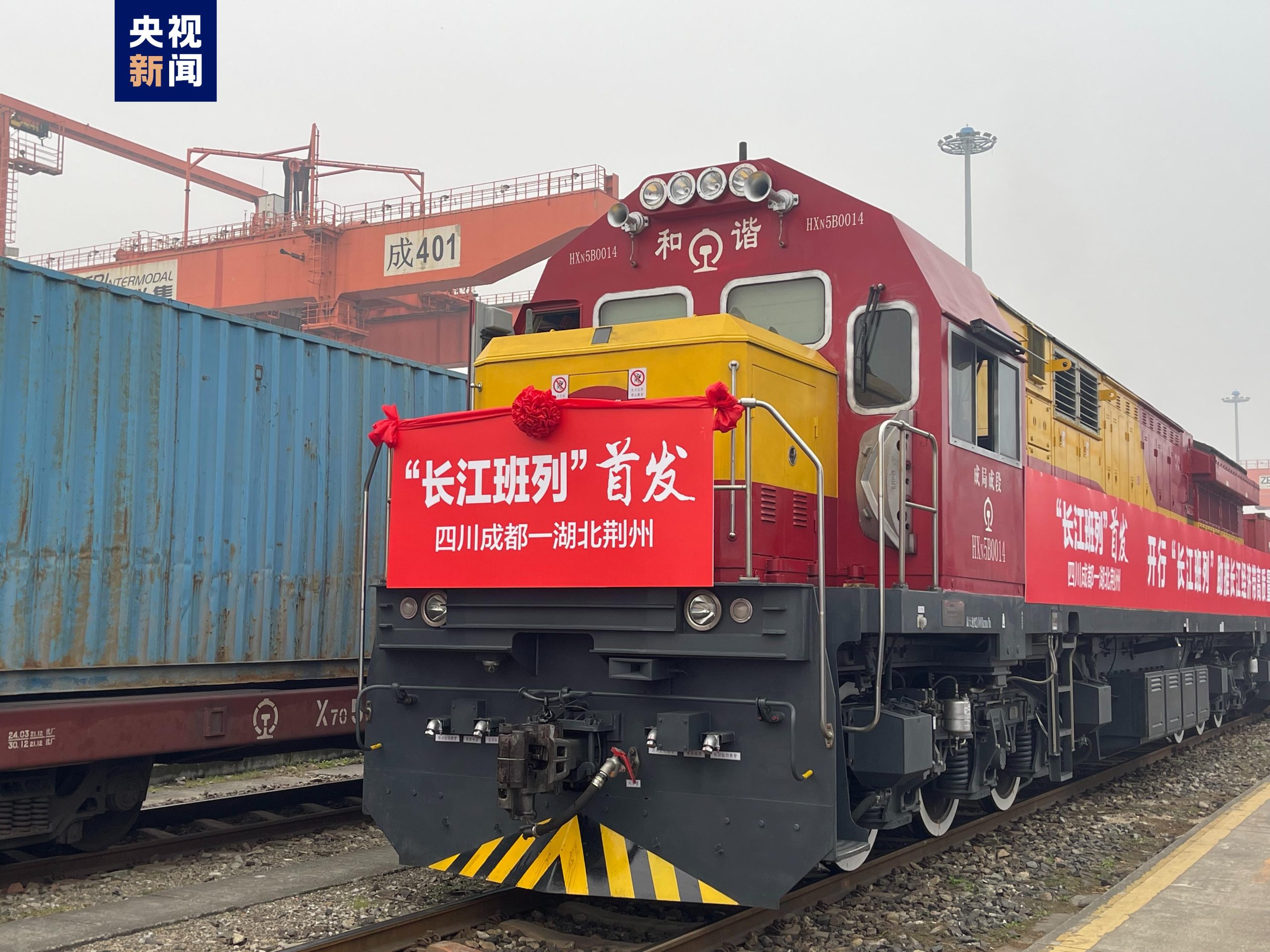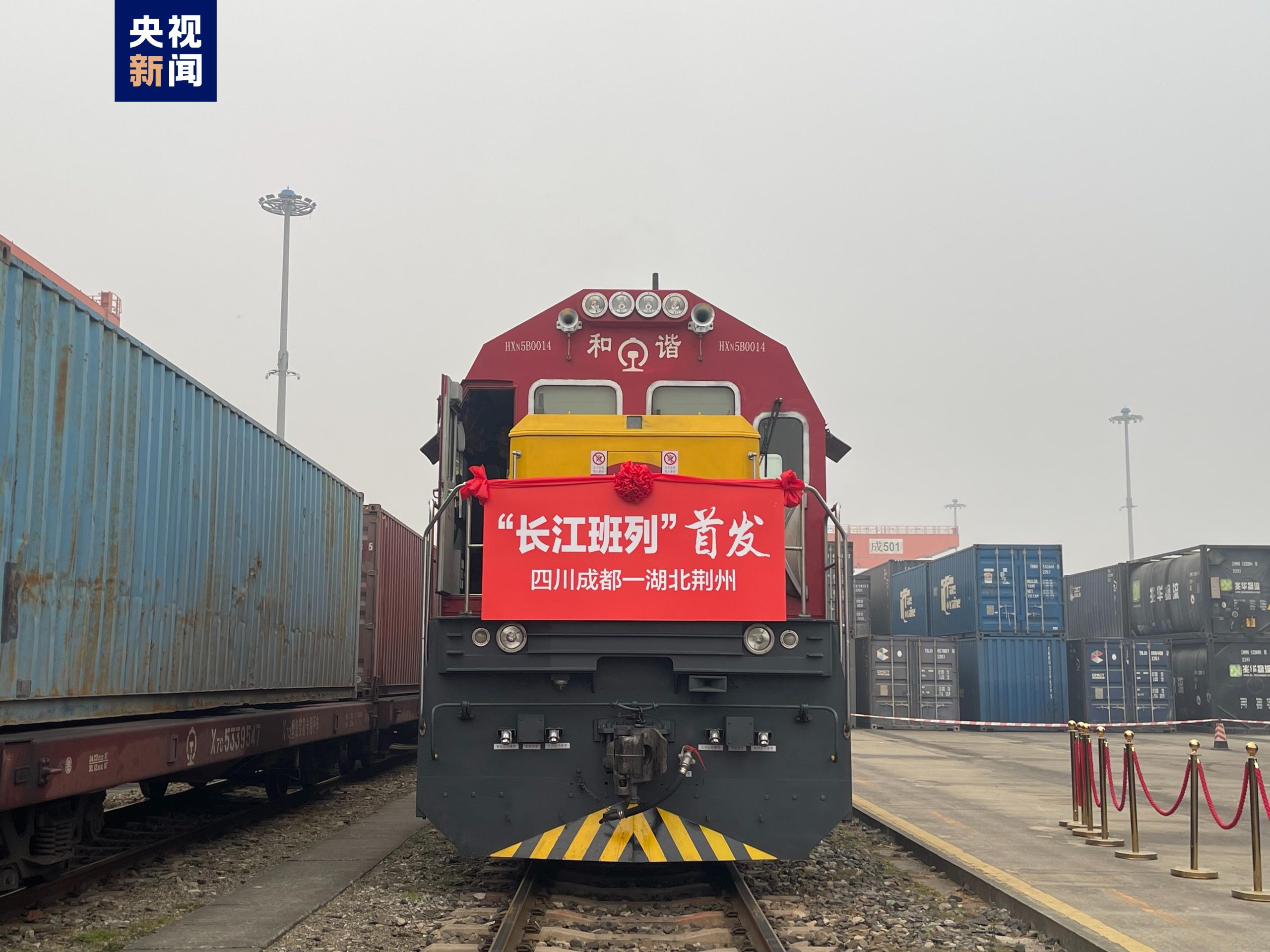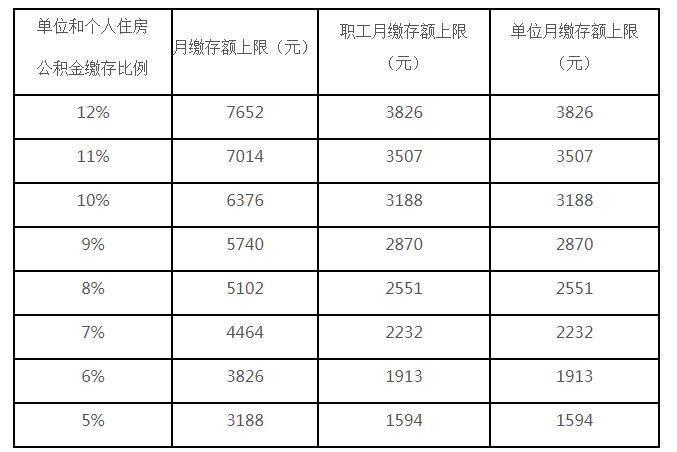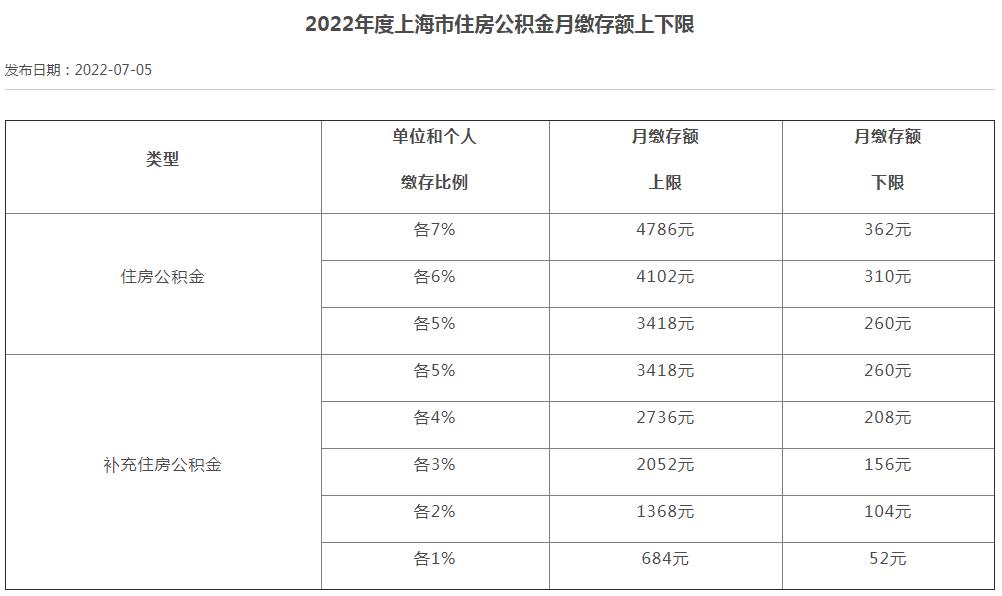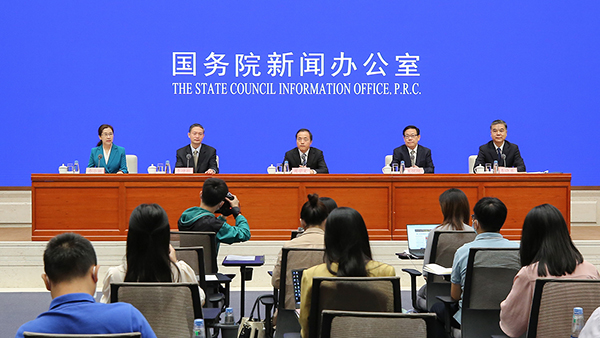People’s Republic of China (PRC) Military Status and Rights Protection Law
(Adopted at the 29th Session of the 13th the NPC Standing Committee on June 10th, 2021)
catalogue
Chapter I General Provisions
Chapter II Military Status
Chapter III Honor Maintenance
Chapter IV Protection of Treatment
Chapter V Pension and Preferential Treatment
Chapter VI Legal Liability
Chapter VII Supplementary Provisions
Chapter I General Provisions
Article 1 This Law is formulated in accordance with the Constitution for the purpose of safeguarding the status and legitimate rights and interests of servicemen, encouraging servicemen to perform their duties and missions, making servicemen a respected profession of the whole society, and promoting the modernization of national defense and the armed forces.
Article 2 The term "serviceman" as mentioned in this Law refers to officers, non-commissioned officers, conscripts and other personnel serving in the China People’s Liberation Army.
Article 3 Soldiers shoulder the sacred duty and lofty mission of defending national sovereignty, security, development interests and the peaceful labor of the people.
Article 4 Soldiers are a profession respected by the whole society. The state and society respect and give preferential treatment to military personnel, ensure that military personnel enjoy the status and rights commensurate with their professional characteristics, responsibilities, missions and contributions, and often carry out various forms of activities to support the army and give preferential treatment to its subordinates.
All state organs and armed forces, political parties and mass organizations, enterprises, institutions, social organizations and other organizations have the responsibility to protect the status and rights and interests of military personnel according to law, and all citizens should safeguard the legitimate rights and interests of military personnel according to law.
Article 5 The work of safeguarding the status and rights and interests of military personnel shall adhere to the leadership of the Communist Party of China (CPC), take serving the construction of the combat effectiveness of the army as the fundamental purpose, and follow the principles of the unity of rights and obligations, the combination of material security and spiritual encouragement, and the level of security being compatible with national economic and social development.
Article 6 The political departments in the Central Military Commission (CMC), the departments in charge of retired military personnel in the State Council, relevant central and state organs and relevant departments in the Central Military Commission (CMC) shall do a good job in safeguarding the status and rights and interests of military personnel in accordance with the division of responsibilities.
Local people’s governments at or above the county level shall be responsible for the protection of the status and rights and interests of military personnel within their respective administrative areas. The political work departments of units at or above the regimental level are responsible for the protection of the status and rights and interests of soldiers in their own units.
The people’s armed forces departments of provincial military regions (garrison commands), military sub-regions (garrison commands) and counties, autonomous counties, cities and municipal districts are responsible for the liaison and coordination between the people’s governments and military units in their administrative areas in terms of the protection of the status and rights and interests of soldiers, and establish a work coordination mechanism as needed.
Township people’s governments, sub-district offices and grass-roots mass autonomous organizations shall do a good job in safeguarding the status and rights and interests of soldiers in accordance with their duties.
Article 7 The funds needed for the protection of the status and rights and interests of servicemen shall be included in the budget by the central and local governments in accordance with the principle that the powers and responsibilities of expenditure are compatible.
Article 8 The central and relevant state organs, local people’s governments at or above the county level and their relevant departments, and military organs at all levels should regard the status of military personnel and the protection of their rights and interests as an important part of the evaluation of the work of supporting the army, supporting the government and loving the people, and the evaluation of the responsible persons and staff of relevant units.
Article 9 The state encourages and guides mass organizations, enterprises, institutions, social organizations, individuals and other social forces to provide support for the protection of the rights and interests of military personnel through donations and voluntary services according to law. Those who meet the prescribed conditions can enjoy preferential tax policies according to law.
Tenth August 1st every year for the China People’s Liberation Army Day. People’s governments at all levels and military units shall organize celebrations, memorials and other activities on the Army Day.
Eleventh units and individuals who have made outstanding contributions to the protection of the status and rights and interests of soldiers shall be commended and rewarded in accordance with the relevant provisions of the state.
Chapter II Military Status
Article 12 Soldiers are basic members of the national armed forces led by the Communist Party of China (CPC). They must be loyal to the motherland, to the Communist Party of China (CPC), to the command of the Party, to resolutely obey orders, and to earnestly perform their important duties and missions of consolidating the Communist Party of China (CPC)’s leadership and the socialist system.
Article 13 Soldiers are people’s soldiers. They should love the people, serve the people wholeheartedly, safeguard the safety of people’s lives and property, and come forward and actively help when people’s lives and property are seriously threatened.
Article 14 Soldiers are a strong force to defend national sovereignty, unity and territorial integrity. They should have the fighting spirit and ability required to consolidate national defense, resist aggression and defend the motherland. They should always be on alert according to the requirements of actual combat, practice their enemy killing skills hard, be not afraid of sacrifice, win battles and resolutely complete tasks.
Fifteenth soldiers are an important force in Socialism with Chinese characteristics’s modernization, and should actively participate in the cause of building a socialist modern country in an all-round way, and participate in emergency rescue and handling according to law.
Article 16 Soldiers enjoy the political rights stipulated by the Constitution and laws, participate in the election of members of state power organs according to law, and participate in the management of state affairs, economic and cultural undertakings and social affairs according to law.
Article 17. The officers and men in the army are consistent, and all soldiers are equal in politics and personality, and should respect each other and treat them equally.
The army has established and improved democratic systems such as military representatives’ meetings and military committees, and guaranteed military personnel’s right to know, participate, suggest and supervise.
Article 18 Soldiers must abide by the Constitution and laws in an exemplary manner, earnestly fulfill their civic obligations as stipulated in the Constitution and laws, strictly abide by military regulations and military discipline, have a good style of work, and take the lead in practicing socialist core values.
Article 19 The state provides guarantee for servicemen to perform their duties, and servicemen’s acts of performing their duties according to law are protected by law.
Military personnel who cause damage to the legitimate rights and interests of citizens, legal persons or other organizations in performing their duties shall be compensated or compensated by the state in accordance with relevant regulations.
Citizens, legal persons and other organizations shall provide necessary support and assistance for military personnel to perform their duties according to law.
Article 20 The specific rights and interests enjoyed and the specific obligations undertaken by servicemen in performing their duties shall be stipulated by this Law and relevant laws and regulations.
Chapter III Honor Maintenance
Twenty-first military honor is the praise and encouragement of the state and society for soldiers’ dedication to national defense, army building and socialist modernization, and it is the spiritual force to inspire military morale and enhance the combat effectiveness of the army.
The state upholds the honor of military personnel and encourages them to respect and cherish honor.
Article 22 The army shall strengthen the education of patriotism, collectivism and revolutionary heroism, strengthen the sense of honor of soldiers, cultivate revolutionary soldiers with soul, ability, blood and morality in the new era, and forge excellent troops with iron general belief, iron general belief, iron general discipline and iron general responsibility.
Article 23 The state adopts various forms of publicity and education, incentives and safeguards to cultivate soldiers’ sense of professional mission, pride and honor, and to stimulate their enthusiasm, initiative and creativity in making contributions and serving the country.
Article 24 The whole society should learn from the glorious history of the People’s Liberation Army of China, publicize the achievements and sacrifice of military personnel, and create a good atmosphere for safeguarding the honor of military personnel.
The national defense education courses offered by schools at all levels and types should include the glorious history of the China People’s Liberation Army and the heroic deeds of soldiers.
Article 25 The State shall establish and improve the honor system for servicemen, and give meritorious service and honor recognition to servicemen who have made outstanding achievements and contributions by awarding medals, honorary titles, recording meritorious deeds, commending, commending and awarding commemorative medals, and praising the contributions and sacrifices made by servicemen to the country and the people.
Twenty-sixth soldiers can accept the honors awarded by local people’s governments, mass organizations and social organizations, as well as the honors awarded by international organizations and other countries and armed forces with the approval of military units.
Twenty-seventh soldiers who have been commended for meritorious service enjoy corresponding courtesy and treatment. Soldiers who have been commended for meritorious service and honor in carrying out combat missions shall enjoy courtesy and treatment in accordance with the principle higher than usual.
The names and achievements of soldiers who have won meritorious service and honor recognition and performed combat missions shall be recorded in meritorious service books, honor books, local chronicles and other historical records in accordance with regulations.
Article 28 The relevant central and state organs, local and military organs at all levels, and the media such as radio, television, newspapers and the Internet should actively publicize the advanced models and heroic deeds of servicemen.
Article 29 The state and society respect and remember the servicemen who sacrificed for the country, the people and the nation, and respect and treat their survivors.
The state establishes memorial facilities for heroic martyrs for the public to pay tribute to, mourn and cherish the memory of heroic martyrs, and carry out commemorative and educational activities.
The state promotes the construction of military cemeteries. After the death of a soldier, those who meet the prescribed conditions can be buried in a military cemetery.
Article 30 The State establishes a system of military courtesy ceremonies. When citizens join the army and soldiers leave active service, corresponding ceremonies should be held; On occasions such as the burial of martyrs and soldiers who died in the line of duty, mourning ceremonies should be held.
People’s governments at all levels shall organize visits and condolences to military units, military families and martyrs, soldiers who died in the line of duty, survivors of deceased soldiers and other activities on major festivals and anniversaries, and invite representatives of soldiers, military families and martyrs, soldiers who died in the line of duty and survivors of deceased soldiers to participate in important celebrations and commemorative activities.
Thirty-first local people’s governments should hang glory cards for families of soldiers and martyrs, soldiers who died in the line of duty, and survivors of deceased soldiers. Soldiers who have been commended for meritorious service shall be sent good news to their families by the relevant departments of the local people’s government and military organs, and publicity work shall be organized.
Article 32 The honour and reputation of servicemen shall be protected by law.
The honor won by a soldier shall be enjoyed by him for life, and shall not be revoked unless for legal reasons or through legal procedures.
No organization or individual may in any way denigrate or belittle the honor of soldiers, insult or slander the reputation of soldiers, and may not intentionally damage or defile the honor mark of soldiers.
Chapter IV Protection of Treatment
Article 33 The State establishes a system to ensure the treatment of servicemen, to ensure that servicemen perform their duties and missions, and to ensure the living standards of servicemen and their families.
Soldiers who perform combat missions and major non-war military operations, as well as those who work in hard and remote areas and special posts, are guaranteed preferential treatment.
Article 34 The state establishes a relatively independent, distinctive and comparative advantage salary and treatment system for servicemen. Officers and non-commissioned officers shall practise a salary system, and conscripts shall practise a system of supply and living allowance. Soldiers enjoy preferential policies for personal income tax.
The state establishes a mechanism for the normal increase of military salaries and benefits.
The structure, standards and adjustment methods of military salaries and benefits shall be formulated by the Central Military Commission (CMC).
Article 35 The State shall combine military security, government security with market allocation, and physical security with monetary subsidies to ensure the housing treatment of military personnel.
Soldiers who meet the prescribed conditions are entitled to military apartment housing or resettlement housing security.
The state establishes and improves the military housing provident fund system and the housing subsidy system. The state gives preferential policy support to soldiers who meet the prescribed conditions to purchase houses.
Article 36 The state guarantees that servicemen enjoy free medical treatment and treatment of disease prevention, recuperation and rehabilitation in accordance with regulations.
Military medical expenses in local medical institutions, which meet the prescribed conditions, shall be guaranteed by the army.
Article 37 The state implements a military insurance system that reflects the professional characteristics of military personnel and is linked with the social insurance system, and supplements military insurance items in a timely manner to ensure the insurance benefits of military personnel.
The state encourages and supports commercial insurance institutions to provide exclusive insurance products for military personnel and their family members.
Thirty-eighth soldiers have the right to annual leave, family leave and other rest and vacation. Economic compensation shall be given to those who have not taken vacation or have not taken full vacation due to work needs.
Military spouses, children and military personnel who are separated from each other may visit relatives in the army where the military personnel work. Where a military spouse goes to visit relatives in the army, the unit to which he belongs shall arrange holidays in accordance with the regulations and guarantee the corresponding remuneration, and shall not dismiss, dismiss or terminate the labor relationship because he enjoys the holiday of visiting relatives. The travel expenses for visiting relatives of spouses, minor children and adult children who meet the prescribed conditions shall be guaranteed by the troops where the soldiers work.
Article 39 The state establishes and improves the education and training system for servicemen, guarantees their right to education, organizes and supports servicemen to participate in professional and cultural study and training, and improves their ability to perform their duties and their ability to find jobs and start businesses after retiring from active service.
Article 40 The lawful rights and interests of female soldiers shall be protected by law. The army shall, according to the characteristics of female soldiers, reasonably arrange their work tasks and rest and vacation, and provide special protection for female soldiers in terms of maternity and health.
Article 41 The state gives special protection to the marriage of military personnel, and prohibits any act that undermines the marriage of military personnel.
Forty-second officers and non-commissioned officers who meet the prescribed conditions, their spouses, minor children and adult children who cannot live independently can apply for settlement with the army; Military parents who meet the prescribed conditions can settle down with their children in accordance with the regulations. If both husband and wife are soldiers, their children can choose one of their parents to settle down with the army.
Where the location of military personnel serving in active service changes, the family members who have been with the army can move to settle down, or choose to move their accounts to the original domicile of the military personnel and their spouses or the domicile of their parents.
The relevant departments of the local people’s government and the relevant units of the army shall go through the relevant procedures for the families of military personnel to settle down with the army in a timely and efficient manner.
Article 43 The state protects the household registration management and related rights and interests of servicemen and their families.
Citizens keep their household registration when they join the army.
Soldiers who meet the prescribed conditions can enjoy the relevant rights and interests of the registered population in the place where they are serving in active service in education, pension, medical care and housing security.
Measures for the administration of servicemen’s household registration and the protection of related rights and interests shall be formulated by the State Council and the Central Military Commission (CMC).
Article 44 The state shall, in accordance with the relevant provisions of the laws and regulations on the protection of retired military personnel, give proper placement and corresponding preferential treatment to servicemen who have been discharged from active service according to law.
Chapter V Pension and Preferential Treatment
Article 45 The state and society respect the contributions and sacrifices made by soldiers and their families for national defense and army building, give preferential treatment to soldiers and their families, and give preferential treatment to the families of martyrs, soldiers who died in the line of duty and soldiers who died, so as to ensure the life of disabled soldiers.
The state establishes a security system for pensions and preferential treatment, reasonably determines the standards of pensions and preferential treatment, and gradually improves the level of pensions and preferential treatment.
Forty-sixth military families enjoy the preferential treatment and protection stipulated by laws and regulations with the documents issued by the relevant departments. Specific measures shall be formulated by the relevant departments of the State Council and the Central Military Commission (CMC).
Article 47 People’s governments at all levels shall ensure that the recipients of pensions and preferential treatment enjoy the inclusive treatment of citizens and enjoy the corresponding pensions and preferential treatment at the same time.
Article 48 The state practices a system of death pension for servicemen.
If a soldier is assessed as a martyr after his death, the state will issue a martyr’s certificate to the survivors of the martyrs, so as to ensure that the survivors of the martyrs can enjoy the stipulated martyrs’ commendation money, pension and other treatment.
If a soldier dies in the line of duty, the state will issue a certificate to his survivors to ensure that their survivors enjoy the prescribed pension and other benefits.
Article 49 The state practices a disability pension system for servicemen.
Soldiers who are disabled due to war, duty or illness shall be assessed with disability grades and issued with certificates in accordance with the relevant provisions of the state, and enjoy disability pensions and other benefits. Those who meet the prescribed conditions shall be properly placed by arranging work, supporting and retiring.
Article 50 The state gives preferential housing to families of soldiers and martyrs, soldiers who died in the line of duty, and survivors of deceased soldiers.
Military families and martyrs, soldiers who died in the line of duty, and survivors of deceased soldiers who meet the prescribed conditions to apply for affordable housing, or who live in rural areas and have housing difficulties, shall be given priority by the local people’s government.
The local people’s government shall give preferential treatment to the survivors of martyrs, soldiers who died in the line of duty and soldiers who died in the preceding paragraph.
Fifty-first public medical institutions should provide preferential treatment services for military medical treatment. Family members of military personnel and survivors of martyrs, soldiers who died in the line of duty and deceased soldiers enjoy medical preferential treatment in military medical institutions and public medical institutions.
The state encourages private medical institutions to provide preferential treatment services for soldiers, their families and martyrs, soldiers who died in the line of duty, and survivors of deceased soldiers.
The state and society give special protection to medical care in disabled soldiers according to law.
Article 52 The State shall protect the employment and resettlement rights and interests of military spouses according to law. State organs, mass organizations, enterprises, institutions, social organizations and other organizations shall fulfill the obligation of receiving employment and placement of military spouses according to law.
If a military spouse works in an organ or institution before joining the army, the people’s government at the place of resettlement shall arrange for him to work in the corresponding work unit in accordance with the relevant provisions; Those who work in other units or have no work units shall be provided with employment guidance and employment training by the people’s government of the resettlement place, giving priority to assisting employment. The local people’s government shall give priority to the employment of the survivors of martyrs, soldiers who died in the line of duty and the spouses of soldiers who meet the prescribed conditions.
Article 53 The State encourages employers with employment needs to give priority to the employment of dependents. When recruiting new employees, state-owned enterprises should employ dependents in accordance with the appropriate proportion of employment demand; Conditional private enterprises can employ dependents in accordance with the appropriate proportion of employment demand when recruiting new employees.
Article 54 The State encourages and supports military spouses to find jobs and start their own businesses. Military spouses engaged in self-employment shall be given support in accordance with the relevant preferential policies of the state.
Article 55 The state gives preferential treatment to the children of servicemen. Local people’s governments at all levels and their relevant departments shall provide local high-quality educational resources for military children and create conditions for receiving good education.
Military children enrolled in public compulsory education schools and inclusive kindergartens can be enrolled in the domicile of their parents, grandparents or other legal guardians, or in their parents’ residence or military station, and enjoy preferential policies for the education of local military children.
Children of military personnel apply for ordinary high schools and secondary vocational schools, and priority is given to admission under the same conditions; Children of martyrs, soldiers who died in the line of duty and children of soldiers who meet the prescribed conditions shall enjoy preferential treatment in admission and other aspects in accordance with the preferential education policy for children of local soldiers.
Children of soldiers who have sacrificed their lives in the line of duty and children of soldiers who meet the prescribed conditions apply for admission to institutions of higher learning, and priority is given to admission in accordance with relevant state regulations; Children of martyrs enjoy preferential treatment such as extra points.
Children of martyrs and children of military personnel who meet the prescribed conditions shall enjoy student financial aid policies such as scholarships, bursaries and related expenses exemption in accordance with the regulations.
The state encourages and supports qualified private schools, and provides educational preferential treatment for children of soldiers, martyrs and children of soldiers who died in the line of duty.
Article 56 Military families and martyrs, soldiers who died in the line of duty, and survivors of deceased soldiers who meet the prescribed conditions and apply for centralized support, hospitalization and short-term recuperation in glorious hospitals and special care hospitals established by the state shall enjoy priority and preferential treatment; Apply to the public pension institutions, under the same conditions, priority.
Article 57 Soldiers, their families and martyrs, soldiers who died in the line of duty, and survivors of deceased soldiers enjoy priority and preferential services in visiting parks, museums, memorial halls, exhibition halls, places of interest, culture and tourism.
Soldiers take buses, trams, ferries and rail transit in the city free of charge. Soldiers and martyrs, soldiers who died in the line of duty, survivors of deceased soldiers, and their accompanying family members, enjoy priority in purchasing tickets and taking buses (boats, planes) and other services on domestic trains, ships, long-distance buses and civil aviation flights, and disabled soldiers enjoys preferential fares.
Article 58 The local people’s governments and military units shall give relief and condolences to the families of military personnel whose basic life is in serious difficulties due to natural disasters, accidents, major diseases and other reasons.
Article 59 Local people’s governments and military units shall give necessary assistance to military families who encounter difficulties in enrolling their minor children in kindergartens and providing for the elderly.
The state encourages and supports enterprises, institutions, social organizations, other organizations and individuals to provide assistance services to families of soldiers in need.
Article 60 Soldiers, their families and martyrs, soldiers who died in the line of duty, and survivors of deceased soldiers whose legitimate rights and interests are infringed upon have the right to lodge complaints and charges with the relevant state organs and military units. The state organs and military units responsible for accepting the case shall deal with it in a timely manner according to law, and shall not shirk or delay. If a lawsuit is brought to a people’s court according to law, the people’s court shall give priority to filing, hearing and execution, and the people’s procuratorate may support the prosecution.
Article 61 If a soldier, his family members and martyrs, a soldier who died in the line of duty, or the survivors of a deceased soldier encounter difficulties in safeguarding their legitimate rights and interests, legal aid institutions shall give priority to providing legal aid according to law, and judicial organs shall give priority to providing judicial assistance according to law.
Article 62 Where the honour, reputation and other related lawful rights and interests of servicemen are infringed, which seriously affects the effective performance of duties and missions of servicemen and causes damage to public interests, the people’s procuratorate may bring a public interest lawsuit in accordance with the relevant provisions of the Civil Procedure Law and the Administrative Procedure Law.
Chapter VI Legal Liability
Article 63 State organs and their staff, military units and their staff who, in violation of the provisions of this Law, abuse their powers, neglect their duties or engage in malpractices for selfish ends in the work of safeguarding the status and rights and interests of servicemen shall be ordered by their units, competent departments or higher authorities to make corrections; Responsible leaders and directly responsible personnel shall be punished according to law.
Article 64 If mass organizations, enterprises, institutions, social organizations and other organizations violate the provisions of this Law and fail to perform the obligation of preferential treatment, the relevant departments shall order them to make corrections; The directly responsible person in charge and other directly responsible personnel shall be punished according to law.
Article 65 Whoever, in violation of the provisions of this Law, denigrates or disparages the honor of military personnel through mass media or other means, insults or slanders the honor of military personnel, or intentionally damages or defiles the honor mark of military personnel, shall be ordered by the public security, culture and tourism, press and publication, film, radio and television, online letters or other relevant competent departments to make corrections according to their respective functions and powers, and shall be dealt with according to law; If mental damage is caused, the victim has the right to claim compensation for mental damage.
Article 66 Whoever impersonates or defrauds the relevant honor, treatment or preferential treatment as stipulated in this Law by means of fraud or forgery of certification materials shall be cancelled by the relevant departments, and shall be given administrative punishment such as confiscation of illegal income according to law.
Article 67 Whoever violates the provisions of this Law and infringes upon the lawful rights and interests of servicemen, causing property losses or other damages, shall bear civil liability according to law.
In violation of the provisions of this law, which constitutes a violation of public security administration, the public security administration shall be punished according to law; If a crime is constituted, criminal responsibility shall be investigated according to law.
Chapter VII Supplementary Provisions
Article 68 The family members of military personnel mentioned in this Law refer to the spouses, parents (dependents), minor children and adult children of military personnel who cannot live independently.
The term "survivors of martyrs, soldiers killed in the line of duty and deceased soldiers" as mentioned in this Law refers to the spouses, parents (caregivers) and children of martyrs, soldiers killed in the line of duty and deceased soldiers, as well as their brothers and sisters who bear the obligation to support them.
Article 69 This Law shall apply to officers, police officers and conscripts in active service in the Chinese People’s Armed Police Force.
Article 70 Provinces, autonomous regions and municipalities directly under the Central Government may, in light of local actual conditions, formulate specific measures to safeguard the status and rights and interests of servicemen in accordance with this Law.
Article 71 This Law shall come into force as of August 1, 2021.
(Xinhua News Agency, Beijing, June 10th)
